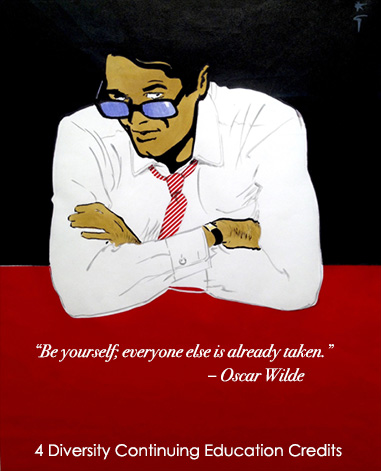The Cutting Ties that Bind: The Intrapsychic and Interpersonal Roles of Humorous Verbal Aggression Among Gay Men
By Colin Ennis, PsyD
 Gay men have long been celebrated for their sharp-tongued humor that is outrageous, incisive, and playful. Casually called “bitchiness” or “cattiness.” It’s been examined from Oscar Wilde to Susan Sontag to “Will & Grace.” However, if you speak candidly with gay men, there are complex reactions to this heritage.
Gay men have long been celebrated for their sharp-tongued humor that is outrageous, incisive, and playful. Casually called “bitchiness” or “cattiness.” It’s been examined from Oscar Wilde to Susan Sontag to “Will & Grace.” However, if you speak candidly with gay men, there are complex reactions to this heritage.
It is simultaneously celebrated and detested because even as it helps to solve intrapsychic problems of powerlessness and self-assertion, as well as acculturate young gay men to a community, it can perpetuate a titrated version of the psychic violence that it defends against. This humor can be an intrapsychic experience of power entangled with shame. It is also an interpersonal phenomenon, transmitted intergenerationally, that shapes the psyches of men and gay boys with emerging identities. Any act of humorous verbal aggression is a performance with multiple roles to be played. It is a complex interaction including a kaleidoscope of dominance, subjugation, revenge, invitation, hazing, grooming, and deep affection.
In this salon, we will apply this information to a clinical case that demonstrates the bonding nature of this humor as well as the ambivalent and changing relationship to it over the lifespan of a man. We’ll discuss a case of a gay man who was raised with terrible consequences for spontaneous self-expression. We’ll examine how he found connection to gay men in his twenties, is attempting to find his voice anew in his 30s, how this disrupts his long-held connections and his psyche, and the unknown experience of what that voice will be. We’ll also have the opportunity to consider how questions of gender and anger play out more broadly as well as the many roles we all play in humor and aggression, and how the two can be interconnected.
